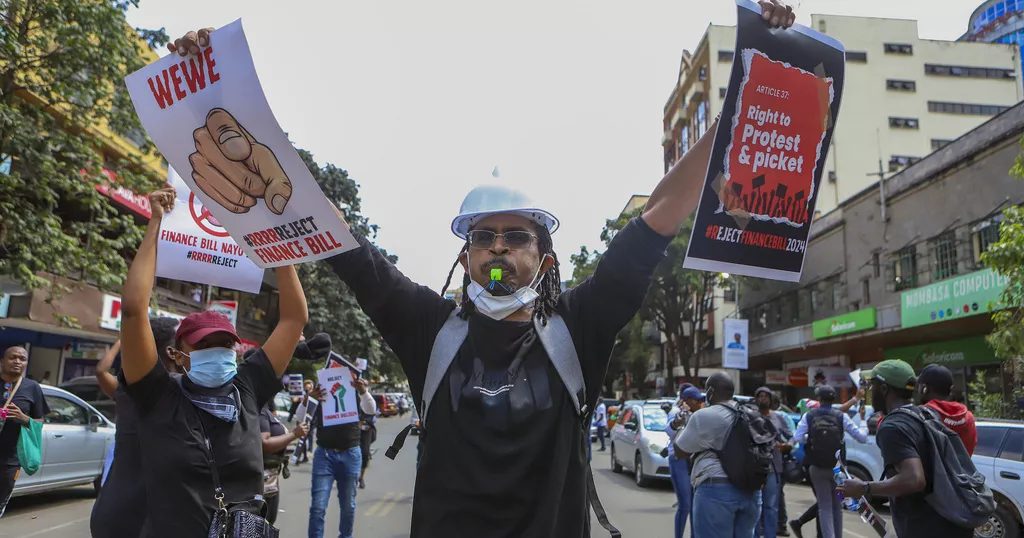
Protests over an unpopular finance bill in Kenya have resulted in at least five deaths and part of the parliament building being set alight.
Demonstrators argue that the bill would impose unaffordable tax increases on ordinary citizens and businesses already burdened by the high cost of living.
Original Bill Proposals
Taxes on Basic Items
- The bill initially proposed a 16% sales tax on bread and a 25% duty on cooking oil.
- It also included an increase in the tax on financial transactions and a new annual tax on vehicle ownership (2.5% of the vehicle’s value).
- Due to public opposition, these measures have been dropped.
The Eco Levy
- This charge targeted products contributing to environmental waste, potentially increasing the cost of essential items like sanitary pads and babies’ nappies.
- The government suggested the levy would apply only to imported products.
- It also targeted digital products, such as mobile phones and cameras, crucial for many Kenyans’ livelihoods.
Measures That Remain
Tax on Specialized Hospitals
- A 16% tax on goods and services for the construction and equipping of specialized hospitals with a minimum bed capacity of 50 remains.
- Critics worry this could raise healthcare costs, though officials deny it will affect cancer patients.
Higher Import Fees
- The bill proposes increasing import taxes from 2.5% to 3%.
- This comes a year after the rate was reduced from 3.5% to 2.5%, leading to concerns about higher prices for imported goods.
Why the Protests Escalated
On Tuesday, MPs passed the controversial bill, excluding some of the most contentious measures. Protesters stormed the parliament building, setting part of it on fire.
Police opened fire with live ammunition, resulting in several deaths. Western countries have expressed concern over the violence and called for calm.
Ongoing Anger and Government Response
Despite the removal of some proposals, anger persists, particularly over the higher import tax.
Many Kenyans feel the government doesn’t address their concerns and are frustrated by President William Ruto’s argument that Kenyan taxes are relatively low compared to other African countries. Previous finance laws introducing unpopular taxes also faced protests.
Next Steps
With the bill passed, President Ruto has 14 days to sign it into law or send it back to parliament for amendments. The government may consider deferring the bill, though this is unlikely.




